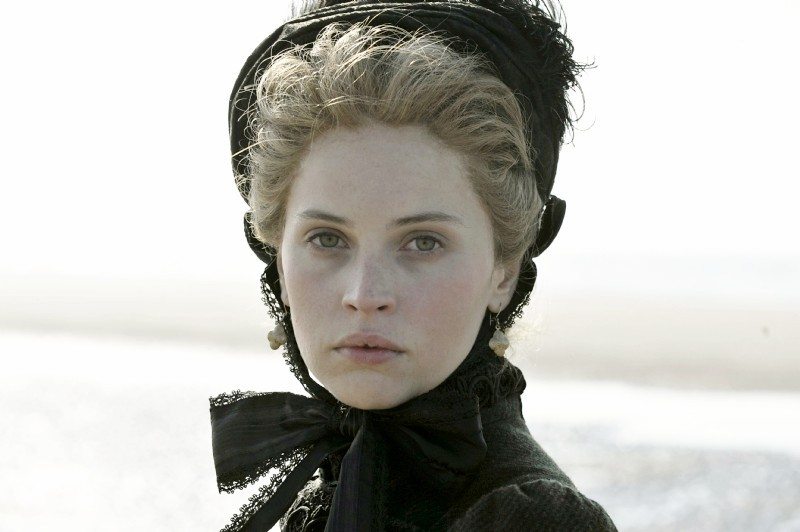
 From an early age, Nelly Ternan (Felicity Jones) was meant to be “someone”; as part of an acting troupe that included her two sisters, announcing them as “infant phenomena”, she filled the stages of England with performances in some of the most notorious dramas of the era. When she turned eighteen in 1857, she was spotted by the infinitely famous Charles Dickens (Ralph Fiennes) who cast her in a small part in “The Frozen Deep” and shortly after began an affair with her that would last until his death.
From an early age, Nelly Ternan (Felicity Jones) was meant to be “someone”; as part of an acting troupe that included her two sisters, announcing them as “infant phenomena”, she filled the stages of England with performances in some of the most notorious dramas of the era. When she turned eighteen in 1857, she was spotted by the infinitely famous Charles Dickens (Ralph Fiennes) who cast her in a small part in “The Frozen Deep” and shortly after began an affair with her that would last until his death.
In “The Invisible Woman” - Fiennes’ sophomore directorial debut - Nelly takes center stage in a way she never truly did in real life. She went from being the least talented of her sisters to becoming the mistress of one of the most famous men in the world, without never truly leaving a mark for who she actually was. Ternan is captured beautifully by the talented Ms. Jones, who ages gracefully in front of our eyes without recurring to severe makeup but merely by acting.
In her tremulous face (her full lips and presence recall a young Julie Christie) during the earliest scenes, we see how Nelly’s world is shook upside down by the realization that she will not be able to fulfill the life she was promised. During a key moment, she becomes aware that her mother (Kristin Scott Thomas) has practically decided to sell her to Dickens and in a few seconds, Jones takes Nelly from terribly heartbroken to serene and accepting.
The film has plenty to say about the treatment of women in the nineteenth century (it could’ve easily been called “The Invisible Women”) as we also see the way in which Dickens humiliates his wife Catherine (a terrific Joanna Scanlan) who learns her husband has had enough of her through the newspaper. Fiennes is able to mount a very handsome production that does its job without really trying to do anything else, where the film could’ve reflected more on the nature of fame and the consequences it brings to those involved, it satisfies itself with telling a good old fashioned story without many bells and whistles.
Perhaps the biggest flaw in “The Invisible Woman” is that the director makes it too subtle and unspecial to feel like a story that needed to be told, only aiding in the perpetuation of Nelly’s legacy as unimportant and well, invisible.